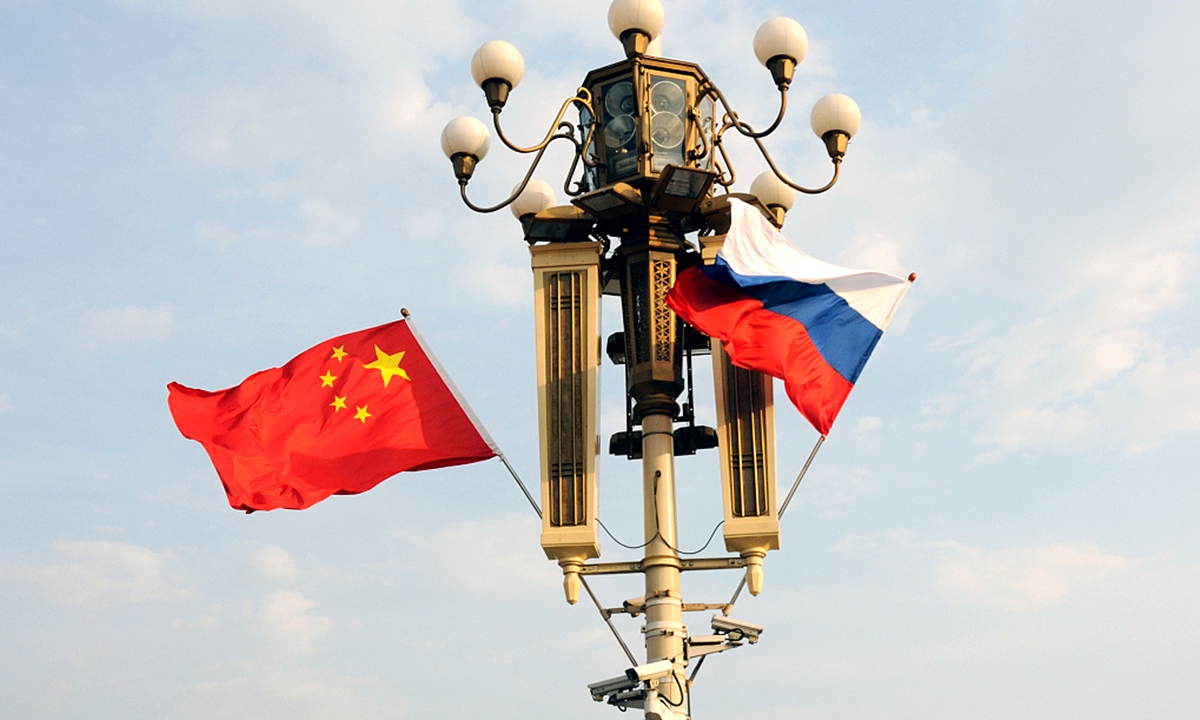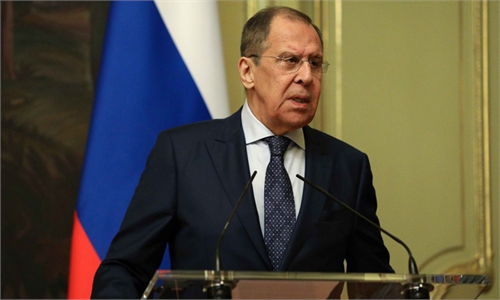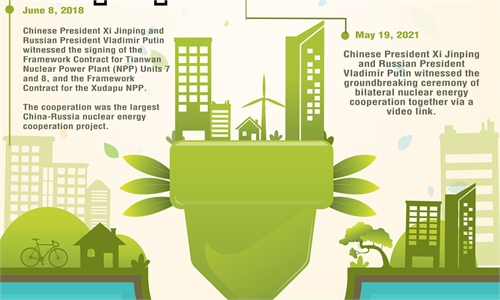
China Russia. Photo: VCG
Yang Jiechi, a member of the Political Bureau of the Communist Party of China Central Committee and director of the Office of the Foreign Affairs Commission of the CPC Central Committee, will visit Russia from May 24 to 27 for the 16th round of China-Russia strategic security consultation.The planned visit comes just after US Secretary of State Antony Blinken, who was attending the Arctic Council Ministerial summit in Reykjavik, Iceland, held a separate talk with Russian Foreign Minister Sergei Lavrov.
Reykjavik is a city that stimulates historical memories. In October 1986, Soviet leader Mikhail Gorbachev and then US president Ronald Reagan met in the city, ushering in the detente between the US and the former Soviet Union - this laid the groundwork for the end of the Cold War. Therefore, international public opinion is concerned about whether the US-Russia foreign ministers' meeting this time marks the beginning of a new detente between the US and Russia and whether it will change the China-US-Russia triangle.
It is worth noting that communications between senior leaders from China and Russia have been frequent this year. For example, in March, Lavrov visited China after a tough meeting between Chinese and US senior officials in Alaska.
The uptick in communications against the backdrop of the ever complicated China-US-Russia triangle and their timings prove that China and Russia have greater political trust.
Judging from the results of the Reykjavik talks, it is clear that the "quasi-Cold War" confrontation between Washington and Moscow has not been changed. The US and Russia have different understandings on the purpose and significance of this meeting. This makes it more like a formality.
From the contents of the talks disclosed so far, the two sides have different opinions: Russia focuses on cooperation on the Korean Peninsula nuclear issue, the resumption of the Iran nuclear deal and Afghan affairs. By contrast, the US emphasizes climate change, cooperation on Arctic issues during Russia's rotating presidency of the Arctic Council, and joint efforts to promote humanitarian assistance and long-term political solutions in Syria and the Nagorno-Karabakh region.
Still, the two sides reached a consensus. The foreign ministers of the US and Russia have acknowledged that there are "serious differences" between the two countries. This is an accurate description of the current state of US-Russia relations, which is more than seriously divided as the two foreign ministers said. The two countries understand each other's behaviors from an ideological view. The actual situation of US-Russia relations is close to the peak of the Cold War.
Obviously, neither Russia nor the US is ready to change the US-Russia relationship or even the China-US-Russia triangle for that matter. Restricted by the domestic public opinions and political forces, the Biden administration is not ready to offer sufficient enticements. What's more, Moscow has no illusions about Washington. Russia knows that the overall situation of the US' continued suppression has not changed.
In the medium- and long-term, Washington will continue to exert extreme pressure on Moscow and at the same time on Beijing. "Dual containment" is the key tone of the Biden administration to manage the China-US-Russia triangle. The US' suppression has contributed to the formation and evolution of strategic cooperation between China and Russia. Facing back-to-back cooperation between China and Russia, the US has never given up its attempt to disintegrate these strategic ties. It has tried to sow the seeds of distrust between China and Russia by inviting Russian President Vladimir Putin to attend the G7 meeting and holding US-Russia foreign ministers' meeting. In this regard, experienced Russian diplomats are well aware of Washington's intentions. The Russians are not confused on major issues in the face of American wooing tactics.
Russia is properly informed that under the situation of transatlantic alliance, Russia cannot get much external support, and China is its strongest strategic cooperative partner. Whereas Russia was subjected to collective sanctions by Western countries in 2014, China has always been supporting it to resist the US' comprehensive suppression.
China morally supports Russia. Indeed, the bulk trade with China helps Russia make up for the deficit of fiscal revenues following the sanctions. The Belt and Road Initiative also links up with the Eurasian Economic Union to achieve the convergence of the two countries' medium- and long-term development plans. This further provides impetus for the stability of China-Russia relations.
Likewise, Russia has given China sufficient support on the issues of China's territorial integrity and national unity. Although the Cold War has been over for more than 30 years, Western countries have never given up the zero-sum game thinking. In order to maintain their own status, Western countries will continue to suppress China and Russia in the future. For both Beijing and Moscow, there is no other choice: either to yield to the West or to join hands to contain the West's ambitions. Both Russia and China are equally firm on this point.
The author is an assistant researcher at the Center for Russian Studies at East China Normal University.
The article was translated by Zhang Yuzheng of East China Normal University.



